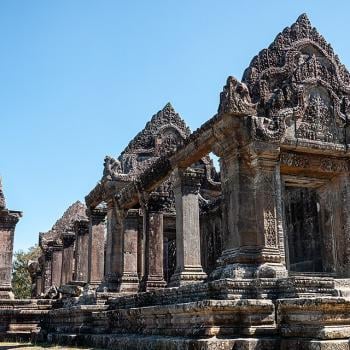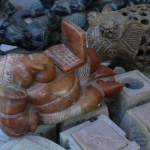Often many ignorant Westerners and “liberals” amongst Indians argue that India – as we know it now as a nation state – was never one. It was only the British who “created” this entity. This is pure nonsense.

First, India was and is still known as Bharatvarsha. And Bharatvarsha got its name from the ruler who rules the complete Akhand Bharat which stretched from the Afghanistan of today to Bangladesh and beyond. If you were to carefully read and count… before the British there were at least Nine other times when Bharat/Hindustan/India was under a large expanse!
Bhārata, sometimes Bhāratavarsha (Bhārat or Bhāratvarsha in Hindi) is the name in Sanskrit and many languages of India for northern India. The Hindi form is also an official name of the Republic of India, and possibly the earliest name given to the nation. (Article 1 of the Constitution of India – ‘India that is Bharat shall be a Union of States.’). In Sanskrit, it is pronounced as [bʱaːrət̪ə] while in Hindi as [bʱaːrət̪].
The Sanskrit word Bhārata (Sanskrit: भारत has several meanings. In Vedic Sanskrit, the primary meaning of the word Bhārata was the epithet of Agni (the Vedic demigod of fire). There could be two etymologies for this epithet:
- It may come from the Sanskrit root bhr- (Sanskrit: भृ), which means to bear / to carry. As Agni was believed to carry the offerings of the Vedic fire-sacrifices to the Heavens, he was given the title of Bhārata, as the bearer of sacrificial oblations.
- It may come as a linguistic derivative of the term Bharata (Sanskrit: भरत, note the short vowel in the first syllable). The term Bharata again refers to Agni or to the fire-priests of the Vedic Age, and is again derived from the same root bhr, but here under the sense of to maintain.
The root bhr is cognate with the English verb “to bear” and Latin “fero”.
However, the term Bhārat was also the proper name of several other people in the Early and Later-Vedic Ages.
The Bharatas are a tribe mentioned in the Rigveda, defeated in the Battle of the Ten Kings.
The name “Bhārata” (in the sense of India) is derived from either of two ancient Hindu kings named Bharata, though it is more commonly accepted that the name derives from that of the son of Dushyanta, whom the Mahabharata credits with bringing the whole of Bharatavarsha under his rule and securing the title of an emperor. He was said to have first conquered all of the known world (sic), which was duly named after him in his honor. Hence his descendents were called as the Bhāratas. In all the classical and religious works of Hinduism, such as the Mahabharata, the Ramayana and the Puranas, Bhārat is the name used for what is today known as the Indian subcontinent.
The Vishnu Purana (2.3.1) defines Bharata as follows: “The country that lies north of the ocean and south of the snowy mountains is called Bharata; there dwell the descendants of Bharata.”
In HistoryHistorical Bharata extends to what are today Pakistan, Nepal and Bangladesh and even by some accounts, portions of eastern Afghanistan. The Maurya Empire, under Emperors Chandragupta Maurya and Ashoka the Great, and the Mughal Empire are the other times the similar extent of land and peoples have been united under a single political entity, but the social, cultural and economic links are complex and originated nine thousand years ago. This expanse has variously been reduced and increased, and was at its largest under Emperors like Chandragupta Maurya, Ashoka the Great, Samudragupta, Chandragupta Vikramaditya, Alauddin Khilji, Akbar the Great, Aurangazeb and lastly under the British
.














